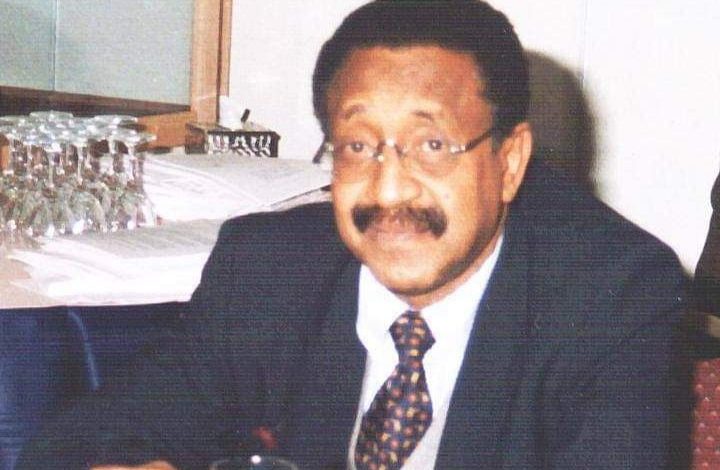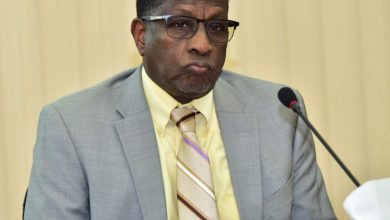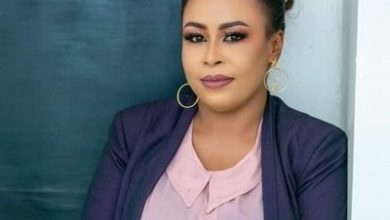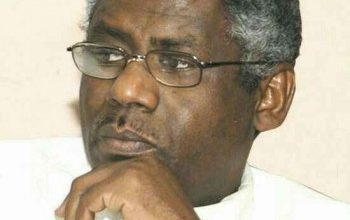
Al-Wathiq Kameir
kameir@yahoo.com
Toronto, December 9, 2023
Despite the difference in the objective and subjective circumstances of the transition in 2019, and the extension of the transition period from one year to four years, the same approach and prescription was adopted to organize elections at the end of the transition period for the same purpose: approving the country’s permanent constitution.
For example: In 1964 and 1985, the polarization was not severe between the political forces active in the arena, so the conflict was limited to the power of transition between what we used to call the “traditional forces” (the Democratic Unionist and the Umma Party) and the Islamist movement, on the one hand, and the “modern forces” (the trade union movements, the On the other hand, the Communist Party, and what we call the “democratic forces,” and despite the differences between these forces regarding the form and powers of the transitional structures and the election law, a degree of consensus between them allowed for the end of a short transitional period, after which the “Constituent Assembly” was elected as a legislative body whose main task is to formulate and approve the permanent constitution for the country (which neither assembly succeeded in approving).
However, the political forces in these two previous experiments succeeded in achieving almost complete consensus on the Intifada (Uprising) Charter, which included even the Islamists, allies of President Numeri before he turned against them only one month before his fall, and who accepted not to formally participate in the transition structures, and left them to the trade union assembly and the political parties, even if the door of Field Marshal, Chairman of the Transitional Military Council, was open to them.
But despite all of this, the struggle over transitional authority (of course, regardless of the degree and extent of the intensity of this conflict during the two previous transitional experiences) between political parties and trade union civil society organizations, continued to return again after the elections and the end of the transitional period. As soon as the elected government took power, disputes over the transition between these same forces surged, and the modern forces entered the opposition against the traditional and Islamic forces. I was an activist and participant at that time, in my capacity as Financial Secretary of the Trade Union Body of Khartoum University Professors, and I witnessed what I called a violent tug of war between the trade union group and the Prime Minister, the late Imam, and the organization of a series of strikes from work, which forced him to form three legitimate governments in a short period, which contributed to weakening the elected government. Thus, the army (with political orders or military ambition) turns against the government in what we called the “malicious circle,” while the country continues to lack a permanent constitution that establishes the Sudanese state and opens the way for true democratic transformation.
As for the process of transferring power after the revolution in 2019, it did not reach its end with the holding of elections. Despite this, the conflict between these forces, although different in forms and manifestations, on the one hand, and between them and the army and the RSF (which is a new factor), on the other hand, led to the coup on 25 October 2021, during the transitional period and was even followed by the April 15 war for the first time in the history of transitions. This time, the change in the nature of the political and civil forces, the absence of elected trade union organizations, the multiplicity of spectrums of all these forces, the emergence of armed movements and the rise of youth resistance, and above all that the RSF militia is the leader of the scene, are all factors that stood in the way of the December 2018 revolution to achieve a reasonable amount of consensus (through the Forces of Freedom and Change Declaration). The transitional period, like the previous two, did not end with elections. The coup occurred this time during the same transitional period, whereas coups usually took place against elected governments. The situation was made worse by the outbreak of the April 15 war, which is still ongoing, as a result of which the political and civil society was divided.
In contrast to the previous two experiences, the inability to reach a broad political consensus to manage the transitional period, even among the forces that were leading the opposition against the Ingaz regime, including political forces, armed movements, and societal and trade union forces, highlighted and spread the concept of the “political incubator” for the transitional government, consisting of specific forces opposed by other forces, whether or not these forces participated in the revolution, and the concept of the incubator was not circulated at all in the previous two transitional periods. After the October 25 coup, this incubator tried to expand its political base by gathering the forces that signed the Framework Agreement, which did not reach its logical conclusion until the April 15 War broke out.
After the war, along with some political forces, what is known as “civilian forces” (which is an ambiguous concept) joined the arena of this struggle over the transitional authority, through initiatives from various civil groups whose general goal is to participate effectively in the negotiations over the next political process, and to have a role in designing post-war transitional structures, and its specific goal is to create a broad coalition to obtain “consensual legitimacy” to represent these forces in any future transitional government.
Thus, with the same approach and “prescription”, despite the difference in objective and subjective circumstances, and after a coup followed by a war, the political and civil forces are seeking to participate in the next transitional authority according to this vision. Do we expect different results or will we return to the eviler or malicious circle this time, and the country will return to the square before the first?
The summary of the matter is that if the goal of all periods of transition is to transfer power from an authoritarian and totalitarian regime to a pluralistic electoral system, then the post-war goal is to initiate the process of establishing a state in which all Sudanese participate, including the army and regular forces, without exclusion, except for the Congress Party (with his legal personality), and the criminal and corrupt person.
In fact, I hope that the lessons of this war will be the motivation for the political, civil and societal forces to avoid their previous approach and abandon their old approach in dealing with the country’s crises during the transitional periods that follow the popular revolutions under the title: The struggle over the authority and management of the transition, which has aborted all transitional experiments. All these forces should engage in an expanded dialogue on the foundational issues of the Sudanese state.
In my opinion, in our current reality, it is not possible to pass from “revolutionary” legitimacy, upon which the transitional authority structures were established, to “constitutional” electoral legitimacy without going through the stage of “consensual” legitimacy. Revolutionary legitimacy as an opportunity to represent the street and the moment and speak in the name of the revolution has diminished in the context of political developments during the transition period, while electoral legitimacy requires a significant amount of time until the establishment process is completed, and any rush in the elections is a rush for political gains and spoils, which undermines the credibility of the elections and the legitimacy of their results. Therefore, the conflict between political forces must go beyond the stage of contradiction and polarization, and these forces must rise above political calculations and power struggles, and shift from “political incubator legitimacy” to “consensual legitimacy” to which all actors in the political scene go, and guarded by youth resistance forces and the broad street according to a vision in which everyone is victorious, which draws the first letters of the process of establishing the Sudanese state.
The founding period begins after the formation of a civilian Caretaker government, consisting of competent people and national figures independent of political parties, among its priorities are the achievement of two main tasks:
1) developing plans for building and reconstruction, and following up humanitarian issues, most important of which is providing security and protection of civilian citizens, and the return of displaced persons and refugees to their original locations, as well as reactivating government services such as health, education, daily living issues, and everything that would lead to the return of normal life, and
2) taking all necessary measures to create the climate for the founding political process and allowing public freedoms for political activity.
Such government is not formed or the duration of the founding period is determined by any incubator of specific political and civil forces, but rather it is selected by (a national body that discusses the founding issues of the state), and all political, societal, civil and youth forces rush towards it and participate in it (and that youth representation is included in these forces) as well as the resistance committees and women’s organizations, and representatives of the states, (except for those who committed crimes or corruption), and armed struggle movements, national figures, leaders of public opinion, expatriates, businessmen and women, and regular forces, with the aim of participating and involving everyone in designing the founding political process until reaching the convening of the National Constitutional Conference, which addresses establishment issues, including supra-constitutional principles, which is the best way to ensure “consensual legitimacy” for this process. This national body shall be formed by a committee of qualified jurists to draft the constitution and present it to a general popular referendum. This national body carries out all the tasks related to the establishment issues until reaching the Constitutional Conference, which are not obligatory or contradictory to the goals of the December Revolution, in addition to the tasks of legislation related to these issues, nominating the civil prime minister, assessing and evaluating the government, and forming the institutions and mechanisms necessary to implement these tasks.
The founding period extends until the holding of the National Constitutional Conference and the referendum on the draft constitution issued by it, and the holding of elections and the handing over of power to an elected civilian government, inaugurating the stage of true democratic transformation.
Before I conclude my statement, I understand and appreciate the questions and inquiries that many people ask about the feasibility of the Constitutional Conference, how to bring together the various parties to agree, and how matters are resolved by voting or consensus. There is no doubt that these are objective obstacles that cannot be overcome without the awareness and real will of the political and societal leaders that sitting at the table for dialogue on establishment issues, which they have not sat at since the Roundtable Conference in the second half of the 1960s, is the only solution to the country’s deepening crisis. Simply, if they choose to struggle over transitional authority, which is a more complex process, instead, then Sudan must make peace.
In conclusion
To be objective and far from wishes and desires, there is no place to express this founding vision if we fail to confront and face the enormous challenges and great obstacles in the event that the war extends and continues for a long time. Failure to achieve the main goal of forming a single national army, with unified leadership, which means maintaining Rapid Support as a military-political actor independent of, and parallel to, the army, will undoubtedly reproduce the crisis that led to the beginning of this war. In this case, the country will enter into a new war that may be broader and more horrific in scope than the current fighting, and its path and outcomes are difficult to predict, including the division of the country or the disintegration of the homeland. The worst scenario, even if it seems unlikely, is the continuation of the war on behalf of regional and international powers, with Darfur being the starting point to subjugate the rest of Sudan with the Rapid Support Militia taking over the central authority, which will cause the greatest amount of damage and destruction, expanding its area, and prolonging the duration of this war, before they leave power on their own. Like most pastoral groups that rushed to uproot power in major urban centers, they tyrannized and wreaked chaos on the land for many years, until they disintegrated after that, such as the German tribes, Vikings, Mongols…etc. However, the Sudanese call to establish and build a state of citizenship, based on fairness, justice, and equality of rights and duties, remains the main issue.


